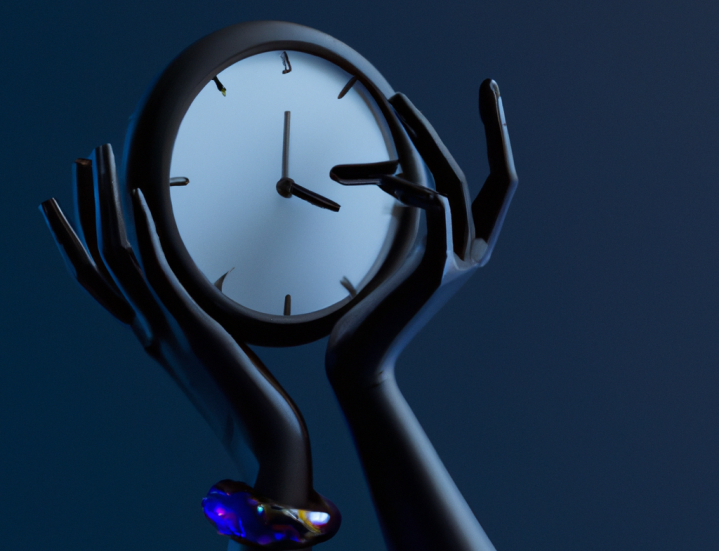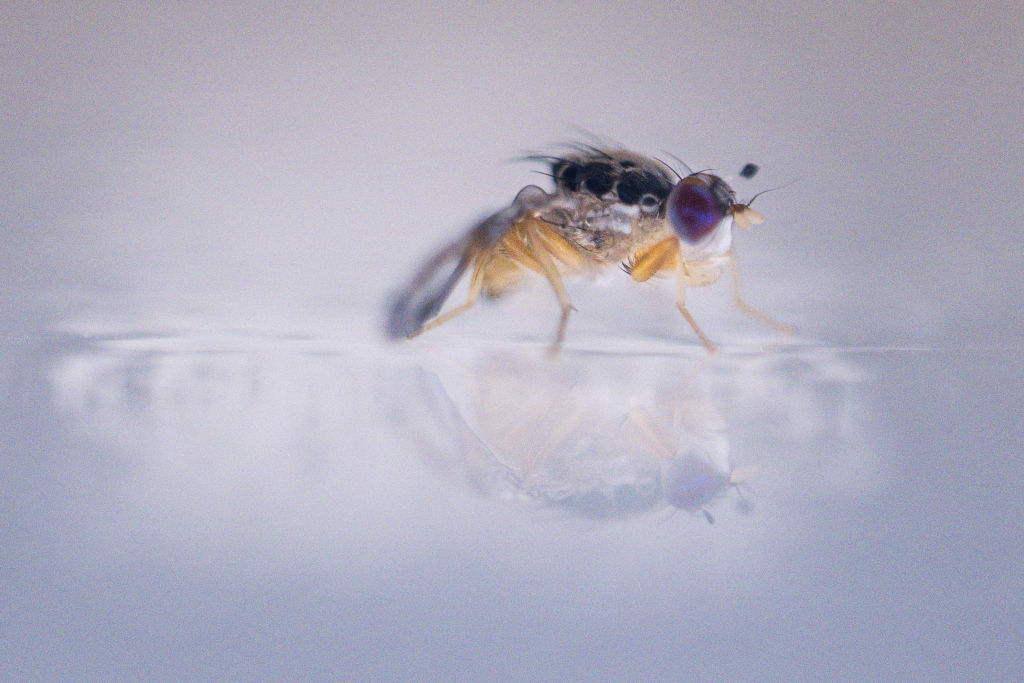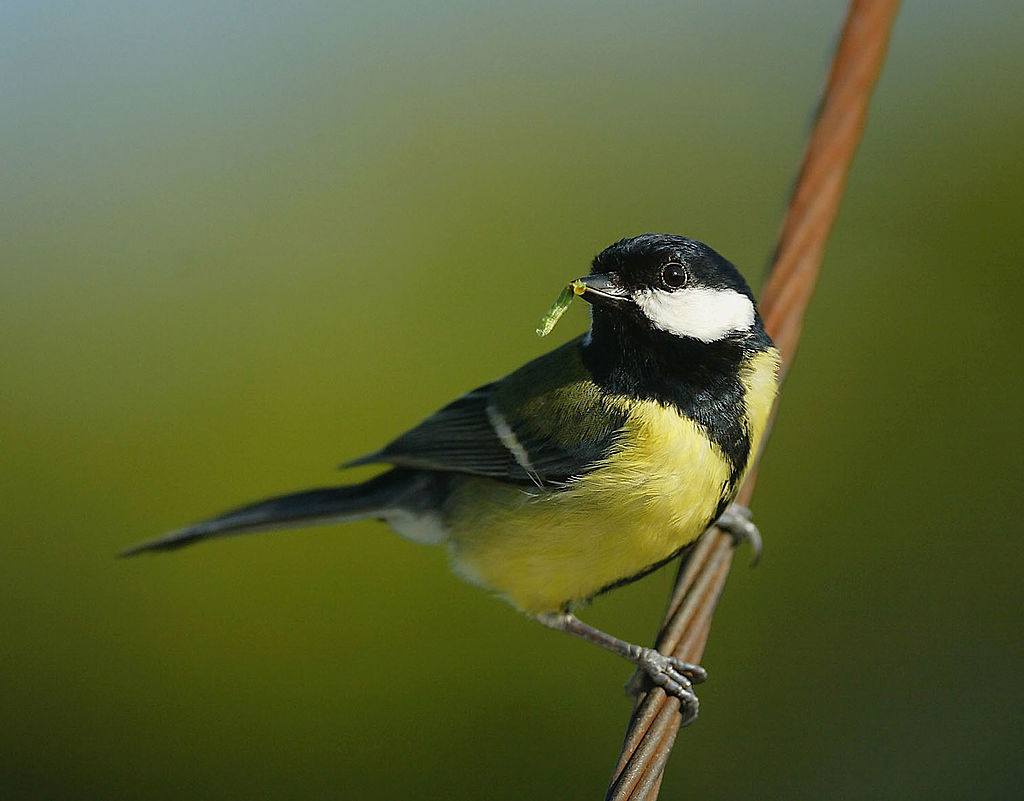THE CONVERSATION
Biological clocks: how does our body know that time goes by?

Our bodies are able to perceive time thanks to our internal clocks, which are also used by the other living beings with which we interact.
In April of this year, Spanish athlete Beatriz Flamini emerged into the light after a 500-day stay in a cave. Her descent underground is probably the longest undertaken by a long stretch. Flamini says she lost all sense of time on the 65th day. But can she be sure it was the 65th day? By way of comparison, in 1962 France’s Michel Siffre surfaced from the Scarasson chasm in Italy after spending what he thought was 33 days there. In fact, he spent 58 days underground.
The tick of life’s clocks
How can isolated human beings keep regular track of time, even when they’re disconnected from their surrounding environment? Quite simply, because biological rhythms are at the heart of life, regulating it all the way from the molecular level up to that of the entire body. These include not only our sleep/wake cycles but also body temperature, hormones, metabolism and the cardiovascular system, to name but a few.
And these rhythms have many repercussions, not least in terms of public health. Indeed, several diseases are episodic – for example, asthma is more severe at night, while cardiovascular accidents are more frequent in the morning. Another example is shift work, which disconnects people from their environment. It may be associated with an increased risk of cancers in workers, prompting the WHO to label it as a probable carcinogen.
Rhythms also impact how we interact with other species. For example, African trypanosomiasis, also called sleeping sickness, is a disorder of our daily rhythm caused by the parasite Trypanosoma brucei, whose metabolism is also daily – just like our immunity.
Genes: the great clockmakers
The rotations of the Earth, Moon and Sun generate environmental cycles that have favoured the selection of biological clocks.
A biological clock is a mechanism internal to organisms that, in the absence of an environmental signal, operates at its own frequency. The regular alternation of day and night has, for example, favoured the evolution of the circadian clock (circa, meaning “approximately”, and diem, “day”).

A fruit fly inside the insect pest control laboratory at the International Atomic Energy Agency (IAEA) nuclear applications laboratory complex in Seibersdorf, Austria on Thursday, Feb. 16, 2023. The common fruit fly provides scientists with an excellent model to analyse many developmental and physiological processes, such as the internal clock or the immune system, at the molecular and cellular levels. Photographer: Akos Stiller/Bloomberg via Getty Images
The circadian clock mechanism was first discovered in the fruit fly, also known as Drosophila, in the 1970s. It is based on feedback loops in the transcription and translation of several genes – gene A promotes the expression of gene B, which in turn inhibits the expression of gene A – creating an oscillation. During the day, light induces the diminution of specific factors of the loop via a photoreceptor called cryptochrome. Interestingly, the key factors in the mechanism essentially only comprise a few genes named period, timeless, clock and cycle. However, the fine-tuning and regulation of the clock is based on a complex molecular and neuronal network that ensures its timing and precision.

A Great Tit pauses on a washing line with an insect in its beak to feed its young, May 27, 2004 in Ayrshire, Scotland. The clock mechanism of great tits has also been studied. The tree on which these tits sit, like plants and fungi, also have biological clocks. (Photo by Christopher Furlong/Getty Images)
There is no single, overarching circadian clock that would organise all of life, as the clock genes vary from species to species. But the principle remains the same: genes whose expression oscillates. Biological rhythms have been described in all the taxa (groups of organisms) studied so far, which comprise cyanobacteria (a type of bacteria that obtain energy via photosynthesis), fungi, plants, and animals, including humans.
In addition, various time givers (zeitgebers) synchronise the organism with its environment: light (the most studied to date), temperature and food, in particular.
An internal clock synchronised by the environment
One very concrete implication of this circadian clock concerns jet lag. This is the deviation of an individual’s internal rhythm from the time of the time zone they are in.
Environmental signals in general, and light in particular, help to re-synchronise the individual: light perceived at the end of the night moves the clock forward, while light perceived at the beginning of the night delays it. Light perceived during the day has no effect. In humans, light is not perceived directly by the molecular clock, but is captured in the retina and then transmitted via the retino-hypothalamic pathway to a central clock, where it modulates the synthesis of clock proteins. The system is not infinitely scalable, however: it takes the human body approximately one day to adapt to a one-hour time difference.
With Homo sapiens’ intrinsic circadian period spanning an average of 24.2 hours, it is easier for us to travel west and lengthen our days than to travel east and shorten them. This is also why athletes and researchers who isolate themselves in the depths of the Earth end up being out of sync with time on the surface and ultimately perceive fewer days than 24-hour solar days.
Other times, other clocks
The circadian clock is not the only clock mechanism that exists in nature. Many biological processes are seasonal, such as the migration of a host of birds and insects, the reproduction and hibernation of many animal species and the flowering of plants. This seasonality is generally dictated by several factors, including by what is known as a circannual clock in the case of many species. The mechanism of this clock has not yet been determined.
The clock mechanisms in marine species are also unknown, partly because of the oceans’ complex temporal structure. Marine organisms are exposed to the solar cycle of alternating day and night, which is superimposed on a series of lunar cycles, the most prominent of which is the tidal cycle (with a period of 12.4 hours or 24.8 hours). The semi-lunar and lunar cycles (14.8 days/29.5 days), linked to the phases of the moon, also strongly modulate the marine environment, via light and tides. The seasons also affect these ecosystems.
While complex, the temporal structure of marine environments is predictable, and biological rhythms linked to all these cycles have been described in marine species. For example, many corals synchronise their reproduction, laying eggs once a year over a very short period. Some marine worms swarm precisely once a month, in the darkest hours of the night, to initiate their reproductive dance before spawning and dying.
Interestingly, in 2020, our team of scientists revealed that biological rhythms are not limited to the coastal environment. We indeed showed rhythms in behaviour and gene expression at a depth of 1,700 metres, in a mussel living in the hydrothermal vents of the mid-Atlantic ridge. Our work underlines that temporal coordination in physiology is likely critical, even in the most extreme life environments such as the deep ocean. DM
This story was first published on The Conversation. Audrey Mat is a Researcher in marine biology and chronobiology at Universität Wien.



















 Become an Insider
Become an Insider
Comments - Please login in order to comment.